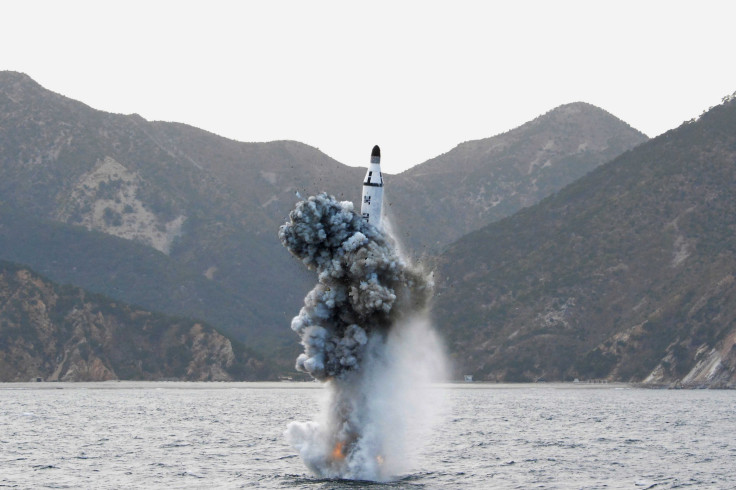War In Korean Peninsula? US To Deploy Sea-Based Radar To Region Amid North Korea’s ICBM Threat

A sea-based U.S. military radar has been dispatched to the Korean Peninsula after North Korea threatened to test-launch an intercontinental ballistic missile, according to reports Wednesday. The radar is capable of tracking ICBMs and distinguish between missiles which are threatening and the ones that are not.
The Sea-Based X-Band Radar left Monday and is expected to reach its destination — about 2,000 miles northwest of Hawaii — by the end of January, according to reports. The SB-X is often dispatched north of Hawaii and deployed about halfway to Alaska to track a possible North Korean missile launch targeting for Alaska, Guam or the West Coast of the United States, CNN reported. Other surveillance assets are being identified to keep a check on activity in the Korean Peninsula, reports said.
The development comes after the North Korean foreign ministry said Sunday the country was prepared to launch a ballistic missile at any time and from any location. The reclusive state said it developed the ICBM to strengthen its self-defense capabilities to counter “the ever more undisguised nuclear war threat from the U.S.”
The ministry also said Pyongyang developed a hydrogen bomb and “had access to standardized nuclear warheads by bolstering up its nuclear weapons on a high level at an unimaginably high speed on the strength of self-development” despite the international sanctions.
“The ICBM will be launched anytime and anywhere determined by the supreme headquarters of the DPRK [Democratic People’s Republic of Korea],” the ministry added.
However, U.S. Defense Secretary Ash Carter said that Washington would shoot down the North’s ballistic missile and called the Kim Jong Un-led country’s nuclear weapons capabilities and ballistic missile defense programs a “serious threat” to the U.S.
“We only would shoot them down ... if it was threatening, that is if it were coming toward our territory or the territory of our friends and allies,” Carter said Sunday.
North Korea’s nuclear ambitions and missile launches last year have triggered worry among the rival South Korea and its ally the U.S. Pyongyang’s only ally China has also expressed concern over the country’s recent its nuclear capabilities.
© Copyright IBTimes 2025. All rights reserved.






















